A long-brewing row at Premier Foods boiled over last month, when it emerged that Hong Kong-based hedge fund and former board representative Oasis Management intended to vote against the re-election of CEO Gavin Darby at the group’s AGM next Wednesday, 18 July.
Since then there has been an escalating war of words between the two parties, with Oasis ramping up the pressure against Darby’s re-election, detailing criticisms of the Premier board and its strategy. It accused Darby of overseeing “five years of failure” that has driven it to a “zombie-like state” while there is “no credible strategy”. Oh, and he’s overpaid for his role, it says. Then news broke on Tuesday Oasis had increased its stake in Premier from 9.1% to 17.3% a week ahead of the vote, giving it a greater say in its future direction. We answer the key questions.
Is the row just about Gavin Darby’s position? No. He’s the figurehead and stands for a number of strategic decisions with which Oasis is unhappy. It’s called for a sale of Batchelors - Premier Foods’ star performer - which it claims could raise £200m to repay debt and free up cash (50% of which it says is used to service Premier’s huge debt pile) to reinvest in the rest of its underperforming portfolio.
The hedge fund stresses it is not calling for slash and burn to return cash to shareholders, and is critical of Premier’s decision to cut ad and promo spend to prop up its bottom line - a “cardinal sin for a branded food manufacturer”.
Wider investor anger stems from the Premier board’s hostile reception to interest by US food group McCormick. Premier says there was no official bid to reject, but critics point to it negotiating a partnership with Japan’s Nissin Foods to in effect block any bid, giving shareholders no say.
Why now? Oasis took a seat on the Premier board in March 2017 after building an initial stake. Daniel Wosner, head of Europe at Oasis, resigned that seat in March 2018 over strategy disagreements.
The key one relates to an externally produced strategic review of the company for 2017-18, which was due to be made public but remains private, and which highlights that the sale of Batchelors would garner a “good return” for the company.
The review involved “exploratory discussions regarding asset sales with third parties and advisors” according to Premier’s investor presentation, but stated that the board’s review concluded there was “no realistic prospect of an offer” for assets which would generate shareholder value.
Oasis has said it committed to working with Darby for improvements from early 2017, but the board resignation in March was a signal of its growing frustration and need to apply pressure externally, choosing to go public ahead of its AGM.
How fair is its criticism? Shareholders are long-suffering. The share price touched 62p amid McCormick’s 65p per share bid interest, but within weeks it was back to around 40p, where it remains.
But Premier’s problems go back further than Darby - to a “reckless spending spree” that left it with “a millstone of leverage, both pension and debt, and a brand portfolio for which it overpaid,” says a City source.
Under Darby’s stewardship, Premier has made progress in restructuring its balance sheet, selling off non-core brands, re-negotiating its pensions payments (it now has a combined pensions surplus of £317m, though pension obligations remain £4.5bn), and cutting costs. There are also signs trading is improving, with Premier posting its “strongest annual performance in five years” as sales grew 3.6% for the year ending 31 March 2018, including second-half growth of 5.3%. Trading profit also rose from £117m to £123m - though it remains below the £140m of Darby’s first full year as CEO.
Much of this was driven by own-label and international sales, with core brand performance spotty. Batchelors posted stellar growth of 10.6%, driven by its partnership with Nissin, three years after sales were tumbling by 12%. But its previously high-growth sweet treats division - driven by Mr Kipling - saw a 3.2% branded sales drop. It also suffered an awful Q1 in branded grocery, including Bisto, Loyd Grossman and Ambrosia, which slumped 7.9% before recovering later in the year.
“Credit to management, they have reinvigorated a number of these products,” says Investec’s Nicola Mallard. “But with a portfolio of eight key brands, it is like spinning plates. You go and do something good on Batchelors and then Mr Kipling comes off the boil, so you have to dash back and spin that plate. It’s not an easy task.”
It hasn’t helped that Darby’s target of 2%-4% sales growth after the McCormick affair was scrapped a year later after a weak 2016/17 that saw underlying sales slip 1.4%.
How much support has Oasis garnered? Premier has wheeled out a host of industry names and bodies to back Darby’s re-election in recent weeks. Institutional Shareholder Services (ISS) Glass Lewis and Pensions & Investments Research Consultants (PIRC) have all backed Darby, adding to support from former Tesco and Waitrose bosses Lord MacLaurin and Lord Price.
Crucially, the trustees of Premier Foods’ £4bn-plus pension funds have also publicly backed the under-fire CEO.
But Oasis is not without its supporters. US hedge fund Paulson & Co, which owns around 6% of the group, has firmly thrown its weight behind the calls for change. Another top 10 shareholder has backed Oasis anonymously in the media. A number of media commentators have also backed Oasis’ drive to shake up the group, with Iain Dey in The Times arguing “the charge sheet laid by Oasis is brutal… Yet it is accurate. [Darby’s] reign has been disastrous”.
What are the chances of Oasis succeeding? Oasis Management and Paulson & Co have a combined share of about 23.4%. Getting to the 51% needed to reject Darby’s re-election looks tough, but might not be necessary. In the past two AGMs, turnout has been 66% and 65%, and only half of voter share is needed.
Darby’s support from Nissin - a 20% shareholder - will provide the greatest barrier.
“Gavin will win the vote,” a source said. “I don’t think he’s done that bad a job and the debate over McCormick’s offer should have happened two years ago.”
What if Darby is out? The hedge fund has already proposed UK MD Alex Whitehouse and director Alistair Murray lead Premier during the CEO hiring process and The Grocer understands seven viable CEO candidates have thrown their hats in the ring, though the role has been considered a “poisoned chalice” says Mallard, who thinks any new boss could become a hero or “the bloke who tried to fix Premier Foods and made a complete mess of it”.
Oasis wants a CEO who shares its commitment to generate funds to pay off debt, and reinvest across the portfolio, through the sale of brands, specifically Batchelors.
What happens if Darby stays? The challenges remain the same for Premier - to invigorate a portfolio of ageing brands while servicing massive pensions obligations and almost £500m debt. At the very least, Darby will be expected to quicken debt reduction in reaction to this public dissatisfaction, but shareholder frustrations have been clear since McCormick’s failed approach in 2016. In the case of Darby’s re-election, Oasis would be left with a 17.3% stake in a company it is unhappy with, and some analysts suggest it might “choose to sell to an aggressor”, but might struggle to find a buyer. Oasis says even a close defeat could have the desired effect, as Darby’s position would be “untenable”.
Could this flush out a new suitor? On a brand level, Oasis is positive about current demand for growth assets in the consumer sector. Premier chairman Keith Hamill worries Premier is a “forced seller” with “weak cards”, but Oasis is confident an open auction for Batchelors would attract bids of about £200m from Nissin and other strategic buyers.
But any interested business would have to be “big enough to pay off the debt, support the pension fund and have a commercial interest,” says Mallard. So, a limited pool, then.







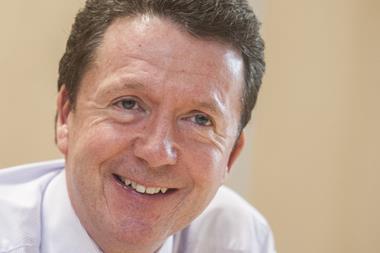
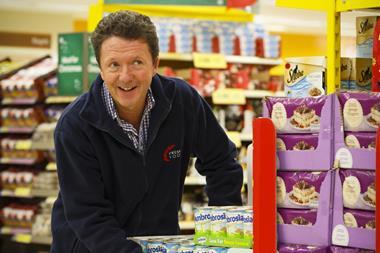
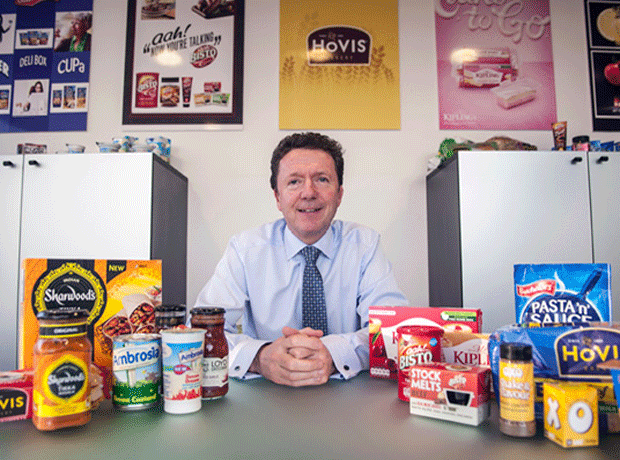
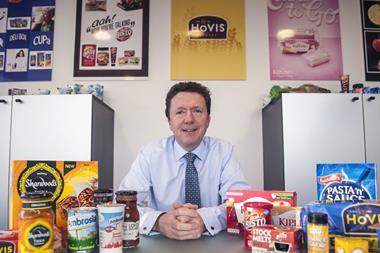
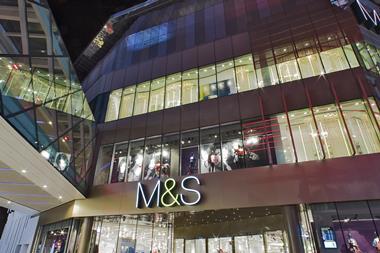







No comments yet